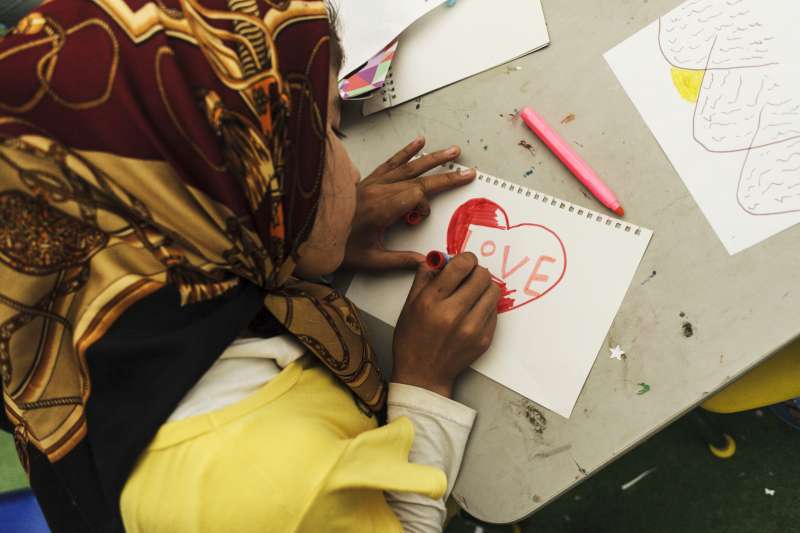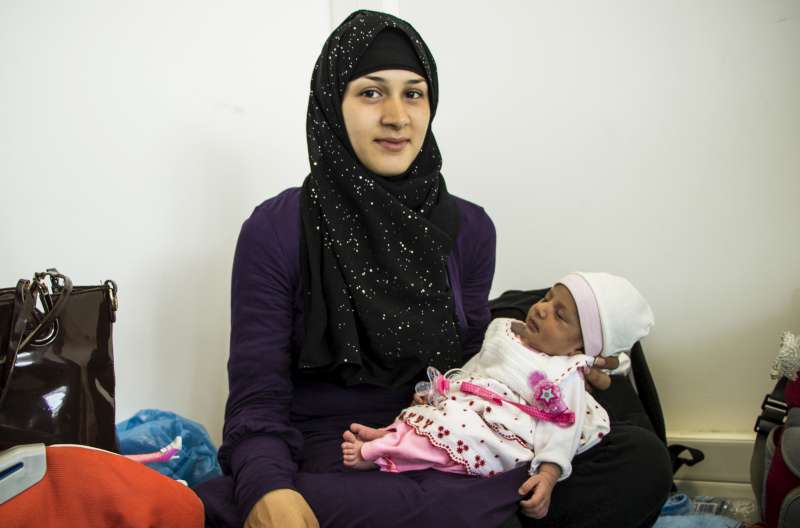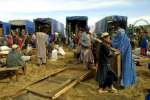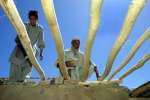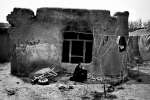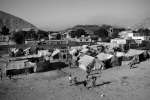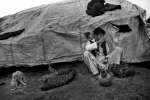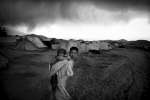- Text size
 |
|  |
|  |
| 
- عربي
Born on the move: an Afghan girl's trip to safety in Europe
News Stories, 14 October 2015
ATHENS, Greece, Oct 14, (UNHCR) – Surrounded by children's toys and loving smiles, five-week-old Mahdia lies comfortably on a white embroidered cloth with a lace trim. However, her peaceful, satisfied eyes are in sharp contrast to the reality of her harsh, new environment.
Her bed is the cement floor of a shelter for newly arrived refugees and migrants. Two rucksacks with necessities are all her family's possessions. Her food and clothes are donated by warm-hearted volunteers.
Mahdia is a baby born on the move, on a long – sometimes dangerous – search for safety, long before she can even walk. She is looking for a chance to live before she can even speak.
Escaping from renewed fighting in the Afghan city of Kunduz, Mahdia's family forms part of the large wave of refugees and migrants that has reached Greece since the beginning of the year.
Forced to flee their homeland by insecurity, an uncertain future and a lack of educational and employment opportunities, tens of thousands of Afghans are on the move.
Some 440,000 people have arrived on Greek shores this year, with about 18 per cent coming from Afghanistan. One in five of all the new arrivals are under the age of 18.
At the age of 19, Mahdia's mother, Fatima, still holds tight to childhood dreams. Married to a driver from her neighbourhood in Kunduz, she hopes someday to become a doctor. "I want to study, to improve," Fatima said gazing into the distance. But it will not be easy for such hopes to become a reality.
Recent fighting in Kunduz drove Fatima and her family from home. Rockets kept her up at night, scaring her much more than the prospect of the long journey to Europe. When she left Afghanistan she was nine months pregnant.
Mahdia was then born in an Istanbul hospital and was 18 days old when the family boarded a dinghy bound for the Greek island of Lesvos.
UNHCR is helping refugees and migrants, like Fatima and her family, once they arrive to Greece. The UN refugee agency is providing information in registration centres about the asylum procedures in Greece, their rights and responsibilities.
UNHCR agency also distributes basic relief items, like sleeping bags and hygiene kits, while it identifies people with specific needs and refers them to the appropriate channels for help.
While Fatima waits for her husband, her thoughts and heart remain in her homeland.
"I want Mahdia to return someday," she said.
By Aikaterini Kitidi, Athens, Greece
